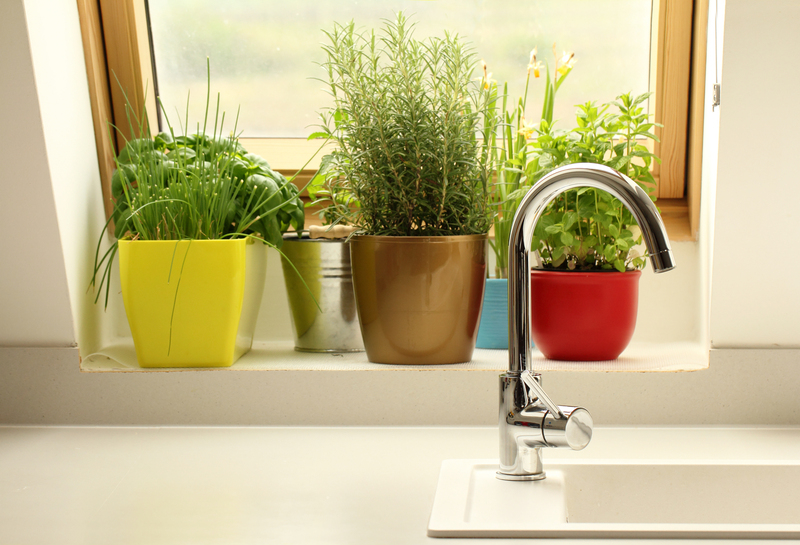Fighting Fire with Fire: Using Natural Methods to Remove English Ivy
Posted on 18/09/2024
English ivy, also known as Hedera helix, is a popular evergreen vine that is often grown as a ground cover or an ornamental plant. However, when left unchecked, it can become invasive and cause harm to other plants and trees. Its vigorous growth habit and the ability to climb and smother trees make it a serious threat to natural ecosystems. If you find yourself battling with this pervasive plant, fear not - there are natural methods that can help you remove English ivy without resorting to harmful chemicals. Let's explore these eco-friendly options in detail.
Identifying English Ivy
Before we dive into the natural methods of removing English ivy, it is important to properly identify it. This invasive plant has small yellow-green flowers and glossy green leaves with white veins. Mature vines can produce berries which are dark purple or black in color. When left uncontrolled, English ivy can grow up to 90 feet in length and forms dense mats that compete for resources with other plants.

Hand-Pulling
One of the most effective ways to remove English ivy is by hand-pulling. This method is best used for smaller infestations or newly established vines. To successfully remove English ivy by hand, wear gloves and grasp the base of the vine close to the ground. Gently pull up the vine and try to remove as much of the root system as possible. Be careful not to break off any pieces of the vine, as they can easily take root and regrow. Repeat this process until all the vines have been removed.
Mulching
Mulching is another effective method for removing English ivy from your garden. It involves covering the ivy with a thick layer of organic mulch such as wood chips, leaves or newspaper. This will deprive the ivy of sunlight and nutrients, eventually killing it. For best results, lay down the mulch in layers that are at least 4-6 inches thick to completely smother the ivy.
Herbicides
While we are focusing on natural methods, it is worth mentioning that herbicides can also be effective in removing English ivy. However, they should only be used as a last resort and with extreme caution. Herbicides can harm other plants and animals, so it is important to follow the instructions carefully and avoid using them near water sources or in areas where beneficial insects reside.
Pros of Natural Removal Methods
Using natural methods to remove English ivy has several advantages. Firstly, it is an environmentally friendly approach that does not use harmful chemicals that can harm beneficial insects, birds and wildlife. Secondly, these methods are cost-effective and easily accessible as they do not require any special equipment or tools. Moreover, they help improve the overall health of your garden by preventing the spread of invasive plants.
Cons of Natural Removal Methods
On the downside, natural methods may take longer to show results compared to chemical-based options. In cases where English ivy has taken over large areas, it may require multiple attempts and continuous monitoring to completely eradicate it. Also, hand-pulling and mulching may not be suitable for individuals with physical limitations or larger infestations.
Tips for Effective Removal
To ensure successful removal of English ivy using natural methods, here are a few tips to keep in mind:
1. Start early: The earlier you tackle the problem, the easier it will be to control the ivy.
2. Be persistent: Removing English ivy takes time and effort. Continue monitoring and removing any regrowth until all the vines are eradicated.
3. Protect yourself: Wear gloves and protective clothing while handling English ivy as some people may experience skin irritation.
4. Consult a professional: If you are unsure about the identification or removal of English ivy, seek advice from a local gardening expert.

Takeaways
Removing English ivy using natural methods not only helps protect the environment but also improves the overall health of your garden. Hand-pulling and mulching are effective options for small infestations, while herbicides can be used as a last resort. Remember to start early, be persistent and protect yourself while removing English ivy.
Conclusion
In conclusion, fighting fire with fire is an effective way to remove English ivy from your garden without causing harm to the environment. By hand-pulling, mulching or using herbicides responsibly, you can successfully eradicate this invasive plant and prevent it from taking over your outdoor space. So go ahead and give these natural methods a try - your garden will thank you for it!
Latest Posts
Gardening with Dogs: Tips for a Harmonious Backyard
Creating Masterpiece Gardens with Hedge Trimming Shapes and Techniques
Revitalize Your Neglected Garden: Fresh Start Ideas
Essential Gardening Tools Every Outdoor Enthusiast Should Own

